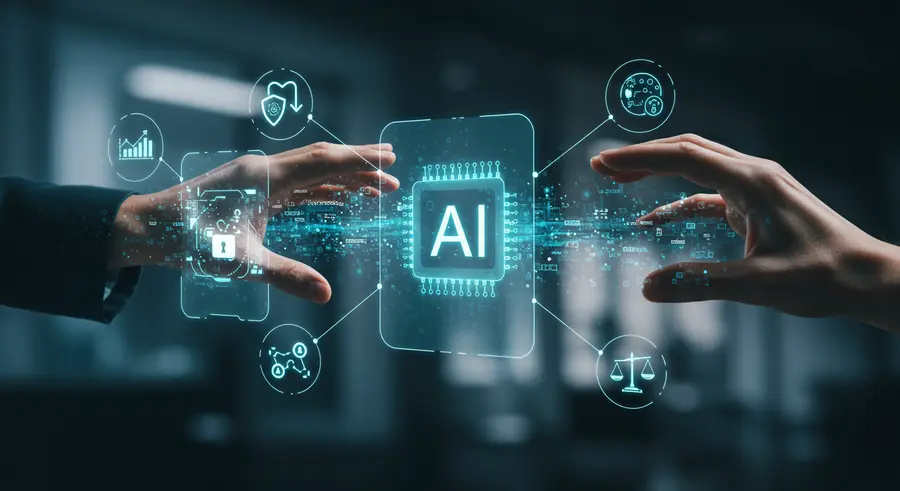Appearance

Welcome, ethical innovators and tech enthusiasts! 👋 In today's rapidly evolving technological landscape, Artificial Intelligence (AI) stands as a monumental force, reshaping industries, economies, and our daily lives. But with great power comes great responsibility. This brings us to a critical concept: Responsible AI.
Responsible AI is not just a buzzword; it's a holistic approach to designing, developing, and deploying AI systems in a way that aligns with human values, ethical principles, and societal well-being. It’s about ensuring that AI benefits everyone, minimizes harm, and fosters trust.
Why is Responsible AI So Crucial? 🤔
The potential of AI is immense, from revolutionizing healthcare to optimizing complex logistics. However, unchecked AI development can lead to unintended consequences, such as:
- Bias and Discrimination: AI models trained on biased data can perpetuate and even amplify existing societal biases, leading to unfair outcomes in areas like hiring, lending, or criminal justice.
- Lack of Transparency (Black Box Problem): Many advanced AI models operate as "black boxes," making it difficult to understand how they arrive at their decisions. This lack of interpretability can hinder accountability and trust.
- Privacy Violations: AI systems often require vast amounts of data, raising concerns about data privacy, security, and potential misuse.
- Security Risks: Malicious actors could exploit vulnerabilities in AI systems, leading to harmful attacks or manipulation.
- Ethical Dilemmas: AI's increasing autonomy raises profound ethical questions, particularly in critical applications like autonomous vehicles or military systems.
By embracing Responsible AI, we proactively address these challenges, striving to build AI that is fair, reliable, transparent, and respectful of human rights.
Core Principles of Responsible AI 💡
While various organizations have put forth their own sets of principles, several common themes emerge:
- Fairness and Inclusiveness: 🌍 AI systems should treat all individuals and groups equitably, without discrimination. This involves mitigating algorithmic bias and ensuring accessibility for diverse users.
- Reliability and Safety: 🛡️ AI systems must perform consistently and safely, minimizing errors and preventing unintended harm. Rigorous testing and validation are paramount.
- Privacy and Security: 🔒 Protecting user data is fundamental. AI systems should be designed with robust data protection measures, adhering to privacy regulations and ensuring data integrity.
- Transparency and Explainability: 🧐 Where feasible, the decision-making processes of AI systems should be understandable and interpretable. This allows for accountability, debugging, and user trust.
- Accountability: ✅ Humans must remain ultimately responsible for the outcomes of AI systems. Clear lines of responsibility need to be established throughout the AI lifecycle.
- Human Agency and Oversight: 🤝 AI should augment, not replace, human capabilities. Humans should retain the ability to oversee, intervene, and override AI decisions, especially in critical applications.
For a deeper dive into these foundational concepts, you can explore the Principles of Responsible AI Development in our catalogue.
Practical Implementation: From Principles to Practice 🛠️
Translating these principles into actionable practices can be challenging, but it's essential. Here are some key strategies for implementing Responsible AI:
1. Data Governance and Management 📊
- Data Quality and Bias Detection: Implement processes to assess and mitigate bias in training data. This includes diverse data collection, data augmentation, and bias detection tools.
- Data Privacy by Design: Integrate privacy considerations from the outset of AI system design, including anonymization, differential privacy, and secure data storage.
2. Model Development and Evaluation 🧠
- Explainable AI (XAI) Techniques: Utilize techniques that provide insights into model predictions, such as LIME, SHAP, or attention mechanisms in deep learning.
- Fairness Metrics and Auditing: Employ fairness metrics (e.g., demographic parity, equalized odds) to evaluate model performance across different demographic groups and conduct regular audits.
- Robustness and Adversarial Attacks: Develop models that are robust to adversarial attacks and unexpected inputs, ensuring reliability in real-world scenarios.
3. Deployment and Monitoring 🚀
- Continuous Monitoring: Implement continuous monitoring of AI systems in production to detect drift, bias, and performance degradation.
- Human-in-the-Loop: Design systems that allow for human oversight and intervention, especially in high-stakes decisions.
- Feedback Mechanisms: Establish clear channels for users to provide feedback on AI system behavior, enabling continuous improvement and correction.
4. Organizational Culture and Governance 🏛️
- Ethical AI Guidelines and Policies: Develop clear internal guidelines and policies for the ethical development and deployment of AI.
- Cross-functional Collaboration: Foster collaboration between AI developers, ethicists, legal experts, and domain specialists to address ethical considerations comprehensively.
- Training and Education: Provide training to teams on Responsible AI principles, best practices, and the potential risks of AI.
- Establish an AI Ethics Committee: For larger organizations, an ethics committee can provide guidance, review AI projects, and ensure adherence to responsible AI principles.
The Future is Responsible 🌟
The journey towards fully responsible AI is ongoing, requiring continuous learning, adaptation, and commitment. As AI becomes more integrated into the fabric of our society, prioritizing ethical considerations is not just a moral imperative but also a strategic necessity for building trust, fostering innovation, and ensuring a positive impact on humanity.
By embracing Responsible AI, we can unlock the full potential of this transformative technology while safeguarding our values and building a future where AI serves as a powerful force for good.
What are your thoughts on Responsible AI? Share your insights and experiences in the comments below! 👇